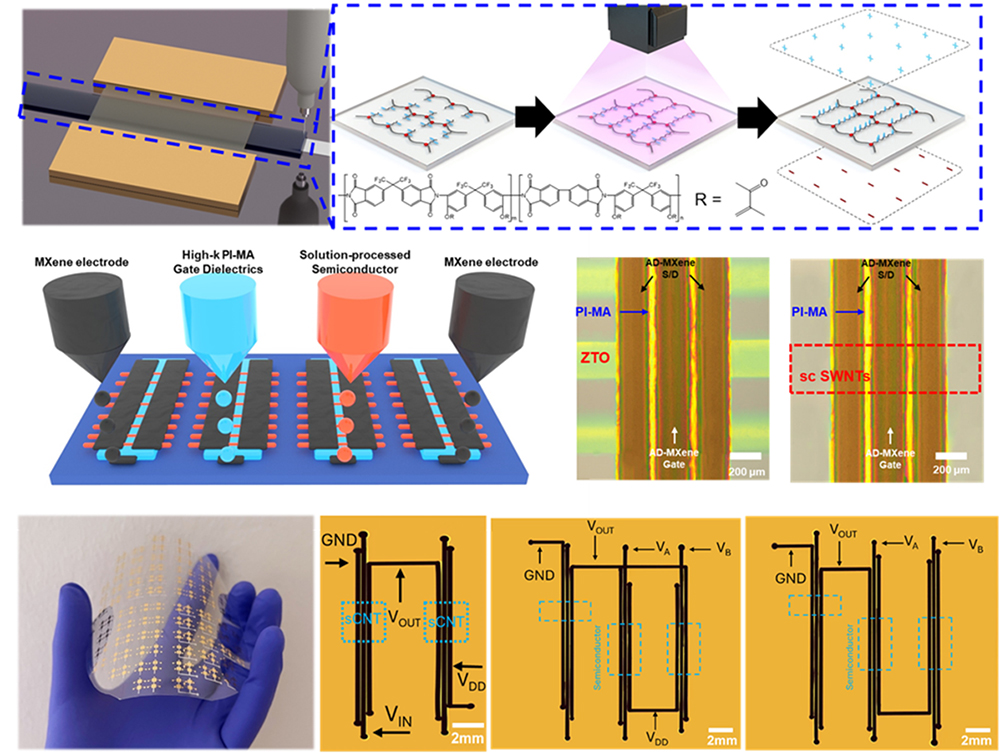연구/산학
PKNU Research 1000
| Kwon Hyuk-jin | Develops Low-power Driven Printed Flexible Transistor Electronic Devices | |||
| 작성자 | 대외협력과 | 작성일 | 2024-12-30 |
| 조회수 | 389 | ||
| Kwon Hyuk-jin | Develops Low-power Driven Printed Flexible Transistor Electronic Devices | |||||
 |
대외협력과 |  |
2024-12-30 |  |
389 |
Pukyong National University Professor Kwon Hyuk-jin’s Research Team Develops Low-power Driven Printed Flexible Transistor Electronic Devices


Pukyong National University (President Bae Sang-hoon) announced that Professor Kwon Hyuk-jin’s research team (Major of Industrial Chemistry) has developed polyimide-based gate dielectric technology, which is being recognized as a key material for next-generation flexible electronic devices.
Professor Kwon Hyuk-jin, along with Professor Lim Bo-gyu, Chungbuk National University (Major of Industrial Chemistry), Professor Kim Se-hyun, Konkuk University (Department of Chemical Engineering), and Professor Lee Seung-woo, Yeungnam University (Department of Chemical Engineering), and the collaborative research team, published their findings in the materials science international journal <Advanced Functional Materials>(IF: 18) in October.
Printed electronic devices are created by dissolving materials in a solvent and printing them using an inkjet printer, similar to how electronic components are made. This method is more affordable and allows for the manufacturing of electronic devices at low temperatures, compared to traditional methods that use expensive vacuum equipment. However, due to the layered printing process, materials tend to break down during manufacturing, making it difficult to create fully functional devices using the printing process.
The collaborative research team developed a new material, metacryloyl polyimide(PI-MA), which simultaneously implements optical patterning and high dielectric(High-k) properties, and successfully used it to create low-power driven flexible transistors through a printing method.
This technology allows electronic devices to be manufactured through a printing method using an inkjet printer with semiconductor and insulating solutions. The collaborative research team overcame these issues by using cross-linking(架橋) technology during the printing process. The cross-linking process securely fixes molecular connections, improving the thermal and chemical stability of the materials.
To achieve this, the research team developed a fluorine-based metacryloyl polyimide dielectric that can undergo photo-crosslinking, and achieved a dielectric constant of 8 at 1kHz by introducing fluorine into the polyimide molecule. This is a significantly improved value compared to the previously reported dielectric constants of polyimide.
Additionally, the developed polyimide has a low leakage current value even without a thermal treatment process, making it suitable as an insulating material for transistors. Using the developed dielectric, the research team manufactured transistors through an All-printing process, and observed high electrical characteristics of the transistors even at low voltages below 5V. They also successfully implemented logic circuits with excellent characteristics.